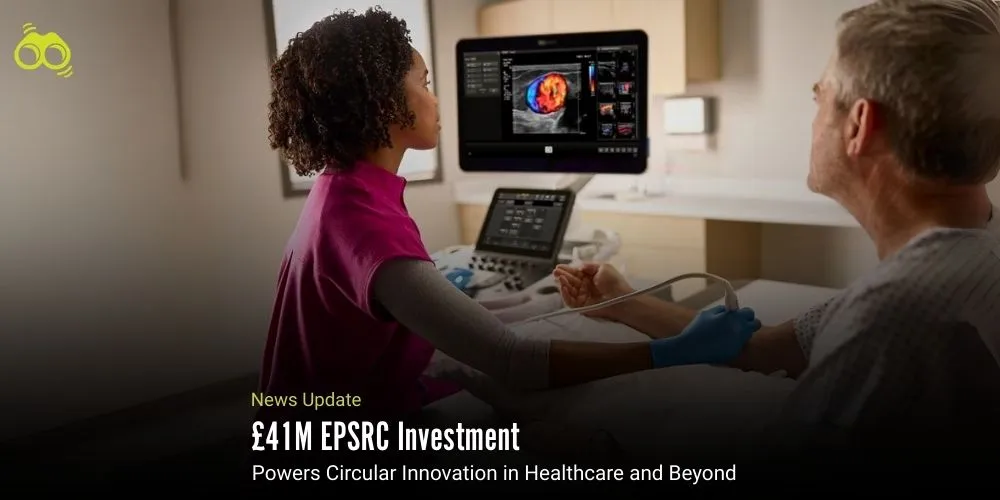EPSRC-Funded Projects Target Sustainable Healthcare, Advanced Technologies, and Circular Innovation
UKRI Backs New Industry-Academia Partnerships to Drive Innovation and Economic Growth
The rapid advancement of technology and the growing complexity of global challenges continue to underscore the need for close collaboration between academia and industry. In response to this demand, the UK Research and Innovation (UKRI) Engineering and Physical Sciences Research Council (EPSRC) remains committed to fostering innovation through its flagship Prosperity Partnerships programme. This initiative brings together leading researchers and businesses to co-develop solutions that deliver tangible benefits to society.
As part of its latest funding round, EPSRC has launched 23 new Prosperity Partnerships targeting critical sectors such as drug manufacturing, artificial intelligence, and cybersecurity. These projects are supported by £41 million in EPSRC funding, alongside £56 million contributed by industry and academic partners. Each partnership is designed to ensure that research is developed and delivered in direct alignment with business needs, thereby enhancing its relevance and impact.
Among the newly announced collaborations, the University of Manchester is leading the CHaMP project (Circularity in Healthcare Materials Provision), under the leadership of Professor Michael Shaver and Anna Russell from Bupa. Supported by Unit M, this initiative seeks to reduce waste and environmental impact in healthcare settings by identifying sustainable alternatives to single-use plastics used in clinics, dental practices, and hospitals. The project places particular emphasis on safe reuse and recycling practices that uphold clinical standards and patient care.
To achieve these goals, the research team will concentrate on four key areas: improving recycling and waste segregation, minimising the environmental footprint of sterilisation processes, analysing behavioural patterns within healthcare environments, and evaluating the performance of various materials and disposal methods. With access to Bupa’s extensive network of clinics and healthcare professionals across the UK, the team will explore practical ways to embed these sustainable solutions into everyday operations.
Science Minister Lord Vallance praised the breadth and ambition of the Prosperity Partnerships programme, noting that it reflects the UK’s commitment to solving real-world problems. He emphasised that collaboration between researchers and industry is essential for translating cutting-edge science into practical innovations that improve daily life. The Prosperity Partnerships programme continues to serve as a powerful catalyst for research-driven solutions that support sustainability, innovation, and economic resilience.
Editor’s Note:
The EPSRC’s launch of 23 new Prosperity Partnerships marks a major investment in innovation aimed at addressing some of today’s most pressing challenges. Spanning vital sectors such as drug manufacturing, artificial intelligence, cybersecurity, and healthcare, each partnership is designed to translate cutting-edge research into real-world solutions. By uniting top academic institutions with industry leaders, the initiative ensures that the UK’s scientific talent is directly contributing to societal progress, economic growth, and environmental responsibility. Each project under this programme plays a crucial role. For example, the University of Manchester’s CHaMP project, in collaboration with Bupa, is tackling the urgent problem of plastic waste in the healthcare sector. By exploring sustainable alternatives to single-use materials and improving recycling practices, this initiative is helping to shape a healthcare system that is both clinically safe and environmentally conscious.
From Skoobuzz’s perspective, these projects play a vital role in supporting the UK’s long-term net-zero ambitions and serve as a model for sustainable practices across other sectors.














0 Comments (Please Login To Continue)